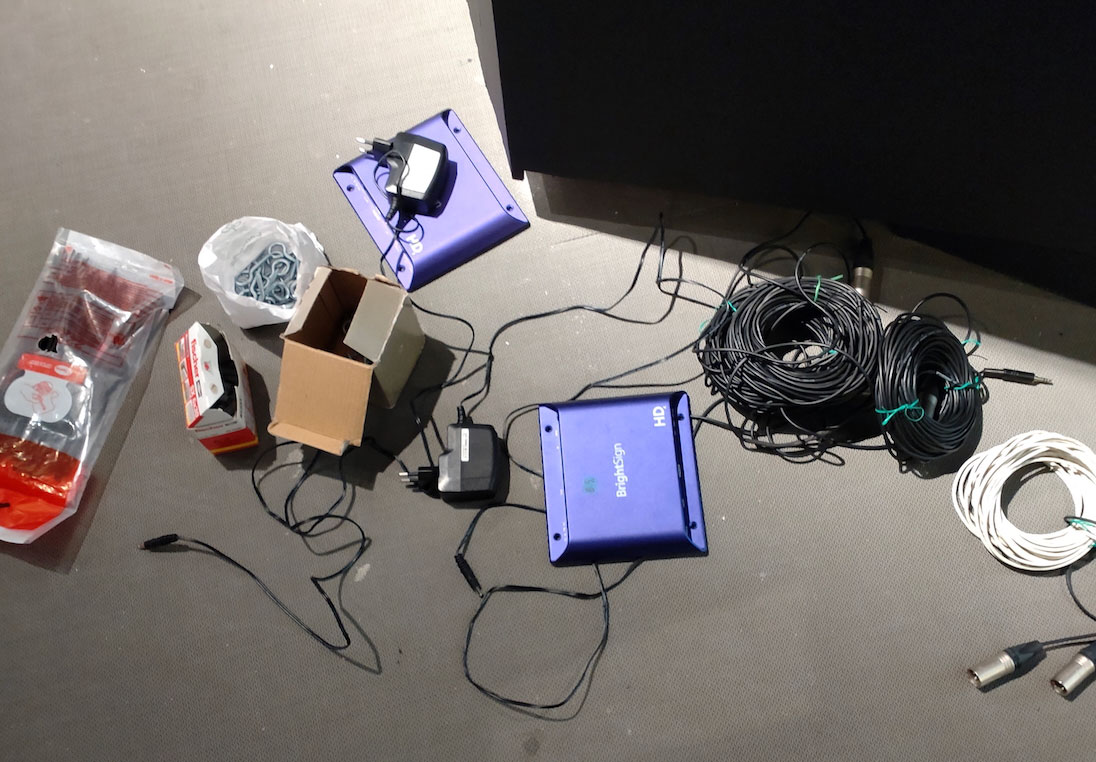
How to apply
1. Apply online at universityadmissions.se (or antagning.se for Swedish-speaking applicants). Please consider the ranking order of the selected educational programmes/courses.
2. Submit all the necessary documentation to verify your eligibility at universityadmissions.se before the deadline. This includes paying the application fee or providing evidence of your fee-exempt status.
3. Upload your application assignments to universityadmission.se following the instructions for your chosen course.
Important dates
1 December 2025: Online application and uploading of applicant assignments opens at universityadmissions.se
15 January 2026: Deadline for applications at universityadmissions.se.
2 February 2026: Deadline for uploading applicant assignments to universityadmissions.se.
All documentation submitted to verify eligibility, including proof of payment of the application fee or proof of exemption, must be registered at universityadmission.se.
February/March 2026: Assessment of assignments.
31 March 2026: Selection results published at universityadmissions.se.
31 August 2026: Start of term.
Expanding the Institutional
CuratorLab 2026/27 proposes an exploration of curatorial, institutional, and para-institutional practices through a series of gatherings, meetings, workshops, project development, historical research, and experimentation. Participants will develop their own curatorial projects in close dialogue with each other, engage with professionals, and study key examples of curatorial thinking.
CuratorLab 2026/27 situates curatorial work within the broader framework of institutional thinking—understood here as a way to interpret and engage with reality, rooted in criticality and a desire to propose new approaches for reshaping our contexts. Whether working inside or outside of formal institutions, curators must consider the structural conditions that influence exhibition-making and other modes of producing and presenting art.
This year's edition will serve as a platform for creatively reimagining institutions, proposing new ways of working from a curatorial perspective in close collaboration with artistic practices and their modes of distribution.
The thematic focus on "expanding the institutional" will be accompanied by engagements with professionals, institutional partners, and historical case studies of curatorial practice.
The course will be led by Marti Manen, with guest lecturer Anna Manubens.
About CuratorLab
CuratorLab is a one-year international advanced curatorial course at Konstfack University of Arts, Crafts and Design in Stockholm. We are exploring experimental approaches to the curatorial, contributing to the pertinent conversations of our times, practicing curating beyond exhibition making and applying horizontal learning.
For more than 25 years, CuratorLab has been a platform to rethink curatorial practice testing models and ways of doing. Experimental exhibitions, publications, seminars, advocacy and project development have been part of the outcomes produced during CuratorLab. The course understands flexibility and porosity as learning methodologies and defines dialogical situations for deeper conversations around criticality, societal aspects of artistic practice and the role of contemporary art today. CuratorLab has been directed by Måns Wrange, Karina Eriksson Wärm, Renée Padt, Joanna Warza and from 2024 by Marti Manen.
Marti Manen (Barcelona, 1976), the director of CuratorLab, has worked intensively with independent and institutional curatorial practice. He has curated exhibitions at the Museo de Historia Natural (Mexico City), Aara (Bangkok), Tabakalera (San Sebastian) Konsthall C (Stockholm), CA2M (Madrid), and Fabra i Coats (Barcelona). Manen was the curator of the Spanish Pavilion at the 2015 Venice Biennale, and curated Momentum10 (Biennial in Moss, Norway, 2019). In the 1990s, he curated five years of exhibitions in his room located in a student flat in Barcelona. Marti Manen has published books including Salir de la exposición (Leaving the Exhibition) (Consonni), Contarlo todo sin saber cómo (Telling everything not knowing how) (CA2M), and When Lines Are Time (Miró Foundation Barcelona). From 2018 to 2026 Marti Manen was Director of Index - The Swedish Contemporary Art Foundation in Stockholm.
More on www.curatorlab.se
Course director
Marti Manen
Anna Manubens (guest lecturer)
Course Syllabus
KOY030.pdf
Language of instruction
All teaching, tutoring, and examinations are conducted in English.
Credits and form of study
60 credits (1 year), full-time, daytime, distance and on-campus.
The course is organised through a series of physical meetings in Stockholm, online continuity and a research trip to Cairo, Egypt.
Examination
Examination involves completion of assignments and active participation in all parts of the course.
Entry Requirements
Bachelor's degree of 180 credits, or higher, in fine arts, art history, critical studies, curatorial studies, architecture, crafts and design, and/or equivalent work experience in independent curatorial practices or within institutions for at least three years. And proficiency in English equivalent to Swedish upper secondary school course English 6/English Level 2. Read more about the language requirements here.
Selection and assessment of applicant assignments
The selection is based on an overall assessment of the applicant's previous relevant work experience, motivation, project proposal and portfolio, and possible interviews.
How to apply
1. Submit an online application to the Swedish central application website www.universityadmissions.se, and send qualifications to support the entry requirements to universityadmissions.se
2. Upload files electronically to universityadmissions.se. These files will be used in the selection between eligible applicants.
The file is uploaded by first logging in to universityadmissions.se. Then go to My Pages, select Documents, and choose the option Upload educational document. Please note that once you have uploaded your documents, you cannot delete them.
Note that the file for selection must be uploaded to current application round in order to be assessed.
Files to submit to universityadmission.se
One (1) PDF file consisting of three to five (3–5) pages.
Page 1: Biography, including your interests in the topic of the course.
Page 2: Project proposal or description of possible ideas for your collaboration-contribution.
Page 3–5: Documentation of relevant working experience (3 pages maximum).
Note that the project proposal functions as a presentation of your ideas and fields of interest, it must not be realised in this exact form during the course.
Name your file using this format: lastname_firstname
Important information about your applicant assignment/portfolio.
Technical specifications
To be able to assess your portfolio correctly, it is important that you comply with these technical specifications.
The PDF file must not be password-protected or set to force the presentation into full screen.